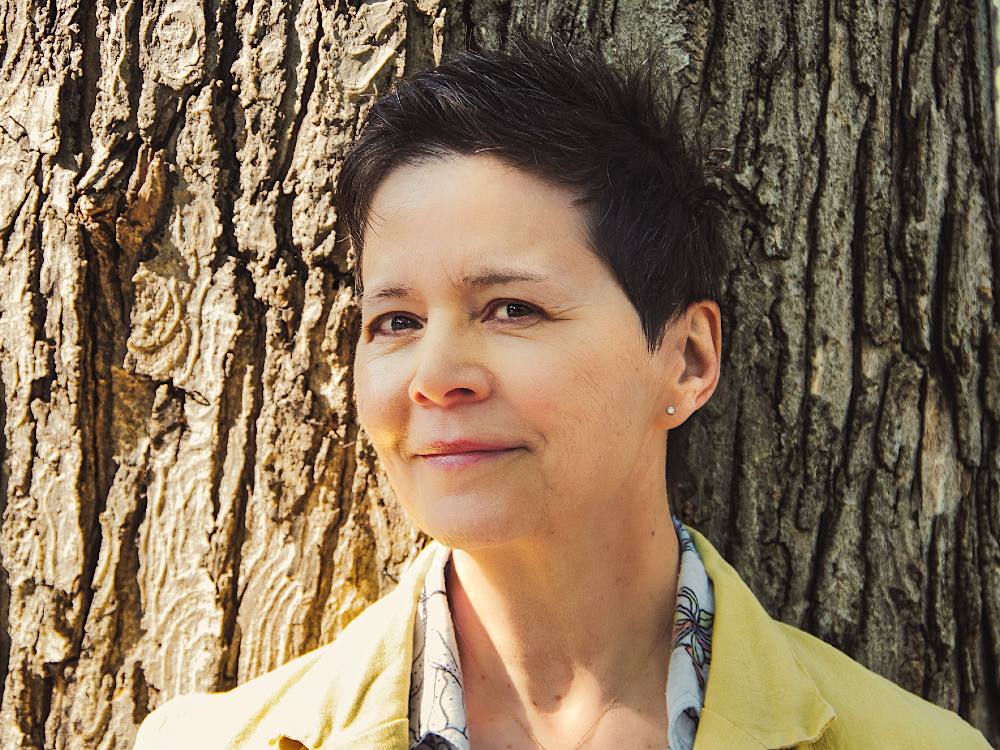- Fayne
- Knopf Canada (2022)
Novels. Big, thick, juicy novels. I’d almost forgotten what it’s like to delve deeply into a story. Non-fiction certainly has its pleasures, but there is something about a sprawling saga so rich one could drown in its pellucid depths. Such a work is Ann-Marie MacDonald’s new novel Fayne.
The book stretches close to 800 generously overstuffed pages. It spills over with details of dress, scientific discoveries, slang (delicious stroppy slang), and all the large-scale action of the 19th century, a period of a staggering change.
The story concerns the life and times of one Charlotte Bell, who is coming of age amidst seismic upheaval. Discoveries in science, medicine and morphing power dynamics between the sexes are all at play. Many of these fundamental cultural shifts are still having impacts on our current moment. It is ripe and ropey stuff, the meat of many a famous literary work, as well as other canonic pieces of art. Think van Gogh, Beethoven and Dickens to name only a few.
Growing up on her family’s remote estate (the titular Fayne) that borders the territory between England and Scotland, young Charlotte has an outsized thirst to partake of everything the larger world has to offer, but a mysterious medical condition has precluded this. By way of substitute or perhaps supplication, her father Lord Henry Bell hires a tutor to instruct his child in the wonders of science, mathematics, history and philosophy.
Outsized characters populate the action, including Charlotte’s late mother and younger brother, immortalized in a portrait that graces the estate. The household help, nursemaid Knox and the mysterious Byrn are repositories of ancient knowledge and its practical applications. There is also the countryside itself, run through with peat bogs, wild creatures and the bleak harsh beauty of wide-open spaces.
MacDonald introduces the book with an image of a young person calling to her in the midst of a windswept moor. She writes: “I couldn’t tell if it was a young man or a young woman…. The image of the moor and of the sweet and questing young person beckoned me, as though they were saying: Follow me. Listen to me. Learn my story. And share it.”
The opening chapters of the story, captured in the heady headlong breathlessness of youth, are chock-a-block with enough material for three or four different novels. But this is only the beginning of the story. Onwards!
On the phone from her home in Montreal, MacDonald is an ebullient and familiar presence. She has been hard at work on the new novel for the past six years, although the years that were the pandemic period she admits did very strange things to our collective sense of time. “The past few years were like time bending in a mirror,” she says.
Actor, author, playwright, triple threat, MacDonald graduated from the National Theatre School in 1980. After cutting her teeth in Canadian theatre, she took on roles in film and television (CBC’s series Life and Times and Doc Zone) and film (Better Than Chocolate and I’ve Heard the Mermaids Singing).
MacDonald’s first novel, Fall on Your Knees, was published in 1996. It won the Commonwealth Prize and was short-listed for the Giller Prize. Her subsequent works of fiction, The Way the Crow Flies and Adult Onset, were equally celebrated. In 2019, MacDonald was made an officer of the Order of Canada for her contributions to the arts as well as her activism on behalf of LGBTQ2S+ rights.
After finishing a work this long in creation, MacDonald likens the moment to “a great big sharing. It is deeply gratifying,” Still, she admits that there is something of a weird split that occurs between “the person who wrote it, and what comes after.”
The work of a writer comes in different parts. There is the heavy lifting of actually putting a book together, what MacDonald describes as “moulding it, shaping it, making it as seamless as possible for the reader.” And then there is the performative part of heading out on the road, reading, promoting, yakking with readers.
“Touring is fun and not fun,” she says. “I should be so lucky. But the best part is meeting readers. That’s the whole point, affecting people. I have a degree of stamina to read aloud, I’m currently recording the audio book, and that’s really fun. But to be actually in front of people, there is a performative aspect, it’s vocally and physically demanding, it requires stamina.”
She says her training as an actor comes in handy in this aspect and sometimes it can be a challenge to be slightly less performative. “I have to distance myself from the depth of novel, from the person who goes to those places. That persona is very different. It’s a big shift, these different modes.”
After spending so much time with characters, I wonder how it is to let them loose out into the wider world. Everyone who reads a story has their own interpretation, their own image of who the characters are, what they look like, and what they need.
This kind of ownership strikes MacDonald as another fascinating aspect of the writing process. She enjoys the idea that once a book enters the world, the audience takes agency, bringing their own interpretations, and that there is no single authoritative version of the story. “It’s incredibly rewarding that they own it," she says of her readers.
Long before that payoff comes the great deal of pleasure to be had in the research phase. “The Osler Library of the History of Medicine, absolute heaven!” she exclaims of the McGill University library. Although some excavations come easier than others. When I tell her that I loved the deep dives into the minutiae of the fashions of the age, there’s a laugh and a sigh. “I love that you appreciate the fashion aspect. It was the single most challenging part.”
MacDonald admits she is a person who doesn’t dote on fashion. Yet the intricacies of dress in 1885 are legion. “I’ve spent my adulthood avoiding this,” she says. “How do you put your girl clothes on? Underpants have five different names!”
For a woman of a certain class, the fetters of dress, of a lady’s toilette, were something of a prison. MacDonald recreates this on a very human level. She investigated girls’ and women’s clothing with the help of a designer friends as well as online research through channels like Prior Attire, which features videos detailing complete wardrobes and articles of clothing from the past 200 years. It’s a comprehensive collection that details everything from garments to the type of fasteners people used.
MacDonald seeks to fully immerse the reader in the time and place where the action is happening, an effect that stems, she says, from “visual cues, the actual names of things, a feeling for the territory.” Which is why she attends to precise details of fashion, architecture, even chairs.
In returning to this period, it’s natural that associations with other novels emerge. In places, Fayne almost feels picaresque in the style of Tom Jones, with generous lashings of the Brontës and Virginia Woolf’s Orlando to name only a few antecedents. There are also echoes of epistolary novels like Samuel Richardson’s Clarissa. MacDonald says some of her early influences weren’t just literary, like Jane Eyre or C.S. Lewis’s Narnia series, but also Looney Tunes.
“I came of age in the theatre,” she explains. “Part and parcel, I was very much out of step with my generation. I want to give people a story. I welcome different tastes. And as many kinds of people as possible.”
It is natural to want to know about a writer’s process, but sometimes even the writer isn’t sure how a story comes to be. Were there any surprises along the way, characters suddenly doing things the author didn’t expect or see coming?
“Once characters are alive, every now and then, I’m taken by surprise, to see it typed out of my ends of fingers. As the narrative emerges, there are tributaries that get abandoned because they’re not alive. You have to stay where the heat is, to stay where it’s alive. The other stuff just falls away like dead skin.”
I admit that while reading, I skipped ahead to make certain that some of the central characters were okay at the end of the story. As MacDonald has said in earlier interviews about her work, any story that doesn’t end with everyone dead is actually a comedy.
I asked her about the emotional requirements placed on the writer when the characters they have created suffer. “You have to feel it, you have to take that journey,” she replies. “It has to pass through me, the totality of me. It’s an emotional journey, but only remembered on a cellular level. I use myself as a lens. Whatever is coming up when I’m working, it’s a big mysterious place.”
Ann-Marie MacDonald will discuss ‘Fayne’ at the Vancouver Public Library on Wednesday, Nov. 2 at 7 p.m. The Tyee’s Dorothy Woodend is hosting the conversation. ![]()
Read more: Books, Gender + Sexuality
















Tyee Commenting Guidelines
Comments that violate guidelines risk being deleted, and violations may result in a temporary or permanent user ban. Maintain the spirit of good conversation to stay in the discussion.
*Please note The Tyee is not a forum for spreading misinformation about COVID-19, denying its existence or minimizing its risk to public health.
Do:
Do not: